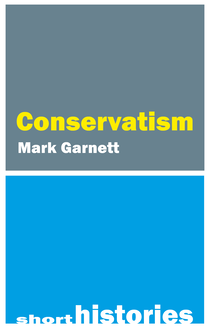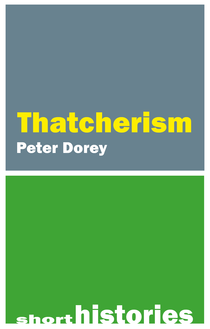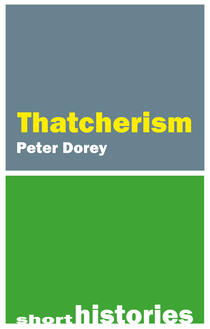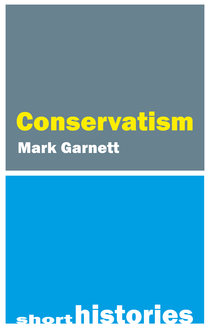-
 Univers
Univers
-
 Ebooks
Ebooks
-
 Livres audio
Livres audio
-
 Presse
Presse
-
 Podcasts
Podcasts
-
 BD
BD
-
 Documents
Documents
-
- Cours
- Révisions
- Ressources pédagogiques
- Sciences de l’éducation
- Manuels scolaires
- Langues
- Travaux de classe
- Annales de BEP
- Etudes supérieures
- Maternelle et primaire
- Fiches de lecture
- Orientation scolaire
- Méthodologie
- Corrigés de devoir
- Annales d’examens et concours
- Annales du bac
- Annales du brevet
- Rapports de stage
La lecture à portée de main
Vous pourrez modifier la taille du texte de cet ouvrage
Découvre YouScribe en t'inscrivant gratuitement
Je m'inscrisDécouvre YouScribe en t'inscrivant gratuitement
Je m'inscrisEn savoir plus
Vous pourrez modifier la taille du texte de cet ouvrage
En savoir plus

Description
The nature of conservative ideology is and will continue to be warmly contested. In this short history, Mark Garnett contends that the disagreements have been particularly strong in the instance of British conservatism because the ideological label continues to be used by a prominent political party. Whether hostile or friendly in intent, commentators on conservatism have found it difficult to avoid the assumption that British "conservatism" must, at all times, be reflected at least to some degree in the policy platforms of the Conservative Party.
This book presents an account of British conservatism which avoids the usual confusion between the ideology and the stated principles of a party which prides itself on an ability to change its views according to circumstances. It shows, since the Tory Party adopted the name "Conservative" in the 1830s it has become increasingly difficult to associate its varying positions with a coherent "conservative" position, so that it is more profitable to discuss its ideological history from the perspective of liberalism and nationalism. This argument is presented by tracing the histories of the party and the ideology in separate chapters, whose themes and cast of characters rarely coincide.
Introduction
1. The contestable conservative tradition: Burke to Southey
2. The Conservative Party from Peel to Salisbury
3. "Converging streams": British conservative thought from Southey to Cecil
4. The Conservative Party, 1902–45
5. "We must have an ideology": conservatism since the First World War
6. The Conservative Party since 1945
Conclusion: is conservatism dead?
A chronology of conservatism and the Conservative Party
Sujets
Informations
| Publié par | Agenda Publishing |
| Date de parution | 30 mars 2023 |
| Nombre de lectures | 0 |
| EAN13 | 9781788215060 |
| Langue | English |
| Poids de l'ouvrage | 1 Mo |
Informations légales : prix de location à la page 0,1250€. Cette information est donnée uniquement à titre indicatif conformément à la législation en vigueur.
Extrait
Short Histories
Agenda Short Histories are incisive and provocative introductions to topics, ideas and events for students wanting to know more about how we got where we are today.
Published
Conservatism
Mark Garnett
Thatcherism
Peter Dorey
© Mark Garnett 2023
This book is copyright under the Berne Convention.
No reproduction without permission.
All rights reserved.
First published in 2023 by Agenda Publishing
Agenda Publishing Limited
The Core
Bath Lane
Newcastle Helix
Newcastle upon Tyne
NE4 5TF
www.agendapub.com
ISBN 978-1-78821-503-9 (hardcover)
ISBN 978-1-78821-504-6 (paperback)
British Library Cataloguing-in-Publication Data
A catalogue record for this book is available from the British Library
Typeset by JS Typesetting Ltd, Porthcawl, Mid Glamorgan
Printed and bound in the UK by TJ Books
Contents
Preface
1 The contestable conservative tradition: Burke to Southey
2 The Conservative Party from Peel to Salisbury
3 “Converging streams”: British conservative thought from Southey to Cecil
4 The Conservative Party, 1902–45
5 “We must have an ideology”: conservatism since the First World War
6 The Conservative Party since 1945
Conclusions: “Is conservatism dead?”
Chronology of conservatism and the Conservative Party
Further reading
Bibliography
Index
Preface
In December 2019, it looked as if the British Conservative Party had performed a feat of electoral escapology to match anything in its long history. The party had been in office since 2010, but never with a secure parliamentary majority. Its implementation of dramatic cuts in public spending – “austerity” – had incurred considerable public hostility during its coalition with the Liberal Democrats (2010–15), and although the party won a narrow overall majority in May 2015 the ensuing months were dominated by a bitter internal debate over an impending referendum on Britain’s membership of the European Union (EU). When this took place in June 2016 a small majority of those who voted rejected the advice of the prime minister, David Cameron, and opted for withdrawal. Theresa May, chosen as Cameron’s successor in preference to more colourful candidates, was unable to recreate a semblance of unity among her own party, let alone the public; a “snap” election called in 2017 in order to bolster her parliamentary position had the opposite effect. From the ensuing constitutional melee over the implementation of “Brexit”, none of the branches of British government emerged with enhanced public esteem; baulked by parliament and the courts, May had exhausted her personal authority long before standing down in July 2019.
To its critics – and, indeed, to many senior figures in its own ranks – this was a mess almost entirely of the Conservative Party’s own making. The erstwhile “party of Europe”, and its allies in the mainstream media, had developed an obsession with the EU, ensuring that this potent source of division was a constant presence in the newspaper headlines which confronted a largely uncomprehending electorate. Spooked after 2012 by a surge in media and public support for the United Kingdom Independence Party (UKIP), which made their own brand of “Euroscepticism” seem tepid, the Conservatives had responded by giving the voters a chance to channel their varied resentments into a one-off, single-issue decision. Cameron had been so confident of a victory for “Remain” that no serious preparations had been made in case the verdict went the other way. Whatever the merits of the rival arguments over the EU, the episode thus exposed the Conservatives as masters of mismanagement. Yet in the election of December 2019 the party was rewarded rather than punished, with an overall majority of 80. Under a new leader, Boris Johnson, it had presented itself as a party which had been wholly committed to Brexit all along, while its opponents, who lamented the referendum result to varying degrees, could be portrayed as bad losers or opponents of “the will of the people”.
For tribal Conservatives this seemed almost too good to be true, and the jubilation was reflected faithfully in the pages of the Daily Telegraph – a newspaper which could claim with justice to represent the conscience of the party. Johnson the vote-winning premier was a long-standing Telegraph columnist, whose baiting of the Brussels bureaucracy had forged his reputation in Eurosceptic circles. The paper had covered the 2019 contest to succeed Theresa May like a coronation for its favourite son, adorning almost every front page with headlines which included the magical name “Boris”.
Yet the Telegraph ’s support was not unconditional; if anything, its connection with Johnson made its columnists more watchful after he had become party leader and secured his “mandate” from the voters in December 2019. In the same month a new virus, Covid-19, had been detected in China. The first confirmed deaths in the UK were recorded in March, and Johnson announced stringent limitations on freedom of movement and association – a national “lockdown”. The Telegraph viewed these developments with a dismay which deepened as restrictions were eased, then reimposed in response to a “second wave” of the virus in autumn 2020. By the summer of 2021 the newspaper’s columnists had concluded that the pandemic had exposed the superficiality of Johnson’s principles. Indeed, according to Allister Heath, under Johnson the country had lurched to the left, so that “Decadent Britain” was now “sleepwalking into a vortex of permanent decline” (Heath 2021a). A few weeks later another Telegraph columnist contributed pieces which successively announced that “The Tories have lost touch with Conservatism” and that the announcement of a new levy to fund health and social care “sounded the death knell for Conservatism” (Tominey 2021a, 2021b). Shortly before Johnson’s enforced departure from the party leadership in July 2022, a Telegraph editorial asked plaintively, “What happened to Conservatism?” ( Daily Telegraph 2022). Its preferred successor to Johnson, who regarded himself as a reborn Winston Churchill, was Liz Truss, whose impersonation of Margaret Thatcher was even more blatant and (at least) equally unpersuasive. During Truss’s swiftly-terminated premiership, several Telegraph columnists expressed enthusiasm for a “philosophical” approach to politics which inspired her to promise lower taxation and a smaller state.
The proper principles of the Conservative Party have been a persistent preoccupation for the Telegraph newspaper group. In July 2017, after Theresa May’s election gamble had backfired, another of the paper’s contributors had suggested that “Conservatism” should be taught in schools, and Allister Heath later supplied a list (“Burke, Locke, Hayek, Friedman and Oakeshott”) of supposedly relevant thinkers whose legacy the party was busily betraying (Heath 2021b). While it would be a mistake to assume that the Telegraph ’s ideological preoccupations are universally shared among members of the Conservative Party, the newspaper knows its audience and, judging from its correspondence columns, plenty of its readers really are engrossed by such debates.
On this evidence, although the nature of “Conservatism” might not be contested as urgently as it was during the Thatcher years, it is still a topic worthy of very serious consideration. A second conclusion arising from the Telegraph ’s commentary during the pandemic is that Conservatism, as a set of principles, cannot simply be equated with the stated views and policy proposals of Conservative Party politicians at any given time. If the Telegraph columnists are to be believed, it is even possible for senior members of the party to be committing “treason” against its true principles. This, of course, is a recurrent refrain whenever supporters of a party feel that their views are not being respected by their leaders. However, the claim coincides with a view held by some (although by no means all) academic commentators, who have attempted to characterize an ideology which may, or may not, be reflected in the Conservative Party’s approach to political questions.
The main objective of the present study is to explore these issues in greater depth, by presenting parallel intellectual histories – of the British Conservative Party, and of the ideology with which it is commonly associated. Such a twin-track approach confronts an awkward terminological difficulty. Academics almost invariably use an upper-case “C” when referring to intellectual developments within the Conservative Party, and a lower-case “c” in relation to ideas which, though obviously associated with the party in some way, are analytically distinct from its stated principles at any given time. However, journalists and politicians feel no obligation to discriminate in this way. The promiscuous use of the upper- and lower-case terms is chiefly characteristic of observers and participants who assert that there can be no difference between “Conservatism” and “conservatism” – in short, that “C/conservatism” is whatever the party of that name chooses it to be. However, some authors – like the Telegraph columnists quoted above – designate ideas with the upper-case “C”, even when arguing that the Conservative Party has deserted Conservatism..
There is no hazard-free path through this methodological minefield: it would, for example, be wrong to impose uniformity on original sources, amending “Conservatism” to “conservatism” in quotations which are clearly referring to ideas. Hopefully this will not give rise to undue confusion in the following pages. My own approach is to use the (upper-case) word “Conservatism” as sparingly as possible. It is relatively straight-forward to examine the development of ideas within the Conservative Party from its origins in the early 1830s, focusing on politicians and intellectuals who chose to be associated with the organization and have sought to influence its po
-
 Univers
Univers
-
 Ebooks
Ebooks
-
 Livres audio
Livres audio
-
 Presse
Presse
-
 Podcasts
Podcasts
-
 BD
BD
-
 Documents
Documents
-
Jeunesse
-
Littérature
-
Ressources professionnelles
-
Santé et bien-être
-
Savoirs
-
Education
-
Loisirs et hobbies
-
Art, musique et cinéma
-
Actualité et débat de société
-
Jeunesse
-
Littérature
-
Ressources professionnelles
-
Santé et bien-être
-
Savoirs
-
Education
-
Loisirs et hobbies
-
Art, musique et cinéma
-
Actualité et débat de société
-
Actualités
-
Lifestyle
-
Presse jeunesse
-
Presse professionnelle
-
Pratique
-
Presse sportive
-
Presse internationale
-
Culture & Médias
-
Action et Aventures
-
Science-fiction et Fantasy
-
Société
-
Jeunesse
-
Littérature
-
Ressources professionnelles
-
Santé et bien-être
-
Savoirs
-
Education
-
Loisirs et hobbies
-
Art, musique et cinéma
-
Actualité et débat de société
- Cours
- Révisions
- Ressources pédagogiques
- Sciences de l’éducation
- Manuels scolaires
- Langues
- Travaux de classe
- Annales de BEP
- Etudes supérieures
- Maternelle et primaire
- Fiches de lecture
- Orientation scolaire
- Méthodologie
- Corrigés de devoir
- Annales d’examens et concours
- Annales du bac
- Annales du brevet
- Rapports de stage









